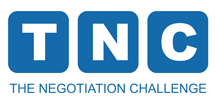Rapport in negotiation refers to the establishment of a positive and harmonious relationship between the parties involved in the negotiation process. It involves creating a sense of mutual trust, understanding, and empathy, which fosters effective communication and cooperation. Building rapport is essential because it helps create a conducive environment for reaching mutually beneficial agreements.
Key aspects of rapport in negotiation include:
- Trust: Building trust is fundamental to establishing rapport. When negotiators trust each other, they are more likely to share information, be open about their interests, and engage in honest and transparent communication.
- Empathy: Demonstrating empathy towards the other party’s concerns and perspectives helps create a sense of understanding and appreciation for their position. Empathy allows negotiators to better understand each other’s needs and find common ground.
- Active Listening: Engaging in active listening involves giving full attention to the other party’s words, asking clarifying questions, and acknowledging their feelings and concerns. This demonstrates respect and shows that you value their input.
- Positive Communication: Maintaining a positive and respectful tone throughout the negotiation helps foster a collaborative atmosphere. Avoiding aggressive language or personal attacks helps prevent conflict and encourages problem-solving.
- Finding Common Interests: Identifying shared interests or values between the parties can create a basis for cooperation and lead to mutually beneficial outcomes.
- Non-Verbal Cues: Paying attention to non-verbal cues such as eye contact, facial expressions, and body language can help convey sincerity and establish a connection.
- Acknowledging Cultural Differences: Recognizing and respecting cultural differences can help avoid misunderstandings and strengthen rapport in negotiations involving parties from diverse backgrounds.
- Building Personal Connections: In some cases, sharing personal anecdotes or finding common personal interests can help create a more human connection between negotiators.
- Finding Win-Win Solutions: A focus on win-win negotiation, where both parties can achieve their objectives, fosters a collaborative approach and strengthens rapport.
- Maintaining Flexibility: Showing willingness to be flexible and accommodating in certain aspects of the negotiation demonstrates a cooperative mindset and can build rapport.
Building rapport in negotiation is not about being manipulative or insincere but rather about genuinely seeking to establish a positive working relationship. When negotiators have rapport, they are more likely to engage in constructive problem-solving and explore creative solutions, ultimately increasing the likelihood of reaching successful agreements.
